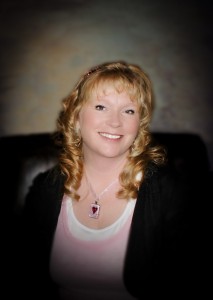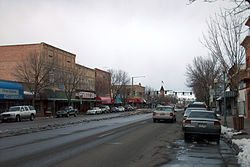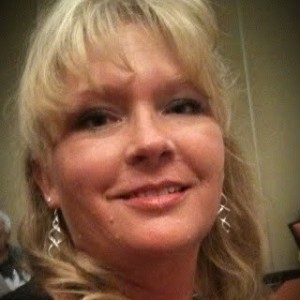Friday, no angels, but we have a Marne. Marne Ann Kirk is back for part two of the interview! We’ll start, in media res, ’cause we go Greek sometimes.
 AARON: So in the beginning, getting all biblical, in the beginning, you wanted to write, heavy, grand, ivory-tower literary fiction. What changed? How did you come to love, honor and obey the power of romances?
AARON: So in the beginning, getting all biblical, in the beginning, you wanted to write, heavy, grand, ivory-tower literary fiction. What changed? How did you come to love, honor and obey the power of romances?
Marne: I did want to write literary. You’re right. I wanted my writing to make a difference in a Poe, Hawthorne, Whitman, or Joyce Carol Oates kind of way. I wanted to force my readers to wallow in the agonies of their insignificance, and then be reborn, enlightened… (wink)
And it’s happening now… just not quite how I’d envisioned it. While I wanted to be the “literary author,” and went to college with that plan in mind, I grew up sneaking romances (which I read like an addict). They were a fantastic escape from a not very happy childhood. The best thing about them? The happily-ever-after. I always knew these people would be happy, and that gave me hope. So, I needed to decide what to write. I decided I’d much rather give people hope and happiness, a happy-ever-after, than plumb the darkness of my soul to scare the holy hell out of my readers and make them search for meaning in a meaningless life.
AARON: I have new project for you, Marne. I’m thinking you should write this book: The Shy Person’s Guide to Writers Conferences. Can you give us a brief overview of what that book might look like?
 Marne: The book would focus on two things: Persistence and Volunteerism. I was so shy when I first began going to conferences, I literally ran from the workshop to my room for the ten minute breaks, just to avoid talking to people. I was…we’ll say 29, and I brought my step-mom for support. I have gone from that person to searching out new attendees to make them feel welcome, and I volunteer for any position I can help with, just to get to know people. Why? Because I recognized right away, being an author is about the whole package. You can have an amazing book, and it will never sell if you can’t talk about it, if you can’t put yourself out there and get to know people, network. So, I decided to go to the next conference and the next, and I began volunteering right away. For anything I thought I might be able to do. At first, that was stuffing bags, so I didn’t have to meet too many people. Now, I’m the Vice-President of Rocky Mountain Fiction Writers, the Secretary of RWA’s Future, Fantasy, & Paranormal Chapter, the conference co-registrar of the Crested Butte Writers Conference, and I do as much as I can to help with the Colorado Gold Writers’ Conference. My point? It’s so difficult to put yourself out there when you’re painfully shy, but you MUST in today’s market, if you want to become a published author.
Marne: The book would focus on two things: Persistence and Volunteerism. I was so shy when I first began going to conferences, I literally ran from the workshop to my room for the ten minute breaks, just to avoid talking to people. I was…we’ll say 29, and I brought my step-mom for support. I have gone from that person to searching out new attendees to make them feel welcome, and I volunteer for any position I can help with, just to get to know people. Why? Because I recognized right away, being an author is about the whole package. You can have an amazing book, and it will never sell if you can’t talk about it, if you can’t put yourself out there and get to know people, network. So, I decided to go to the next conference and the next, and I began volunteering right away. For anything I thought I might be able to do. At first, that was stuffing bags, so I didn’t have to meet too many people. Now, I’m the Vice-President of Rocky Mountain Fiction Writers, the Secretary of RWA’s Future, Fantasy, & Paranormal Chapter, the conference co-registrar of the Crested Butte Writers Conference, and I do as much as I can to help with the Colorado Gold Writers’ Conference. My point? It’s so difficult to put yourself out there when you’re painfully shy, but you MUST in today’s market, if you want to become a published author.
AARON: As VP of RMFW, can you have people killed? I know you get that question a lot, but I’m curious to hear your answer. Seriously, what are the benefits of holding such a high office? The drawbacks?
Marne: I can totally have people killed, and it has people very, very afraid. Mwa-hahahaha…Okay, maybe not. But you’re scared, just a little, right? The benies of being V.P. of RMFW…there are so many, and I’m not even joking. I’m totally serious. For instance, whenever I meet writers without a “home,” I get to talk up RMFW and invite them to join, and I always start with introducing myself as the V.P. It just seems to give me more courage in talking to strangers. Weird, I know, but that’s one perk. Another amazing beni is I get to influence where RMFW goes and what we do as an organization. That’s a huge bit of fun. The drawbacks? How could there be a drawback to helping RMFW be even better than the amazing organization it is?
 AARON: You’ve been with the same critique partners for years and years. What are the pluses and minuses of having the same people read your stuff year after year?
AARON: You’ve been with the same critique partners for years and years. What are the pluses and minuses of having the same people read your stuff year after year?
Marne: I belong to a critique group of seven, right now. The core group, four of us, have been together for eight years and the other three members are all relatively new. The new people help with giving new perspectives, which is great; but the core group is fantastic about never getting “old.” Even though we’re friends, that’s left at the door, so to speak, when the critique begins.
AARON: Okay, Marne, I want your best brilliant-marketing-campaigner-carnival-barker-used-car-salesman pitch for your paranormal romance novel due out this autumn, Goddess on the Run. Hit us with your best shot! Hook us like a carp looking for Velveeta.
Marne: How about this?
All Fomorian Hells are about to break loose on earth, making human souls the daily special, if the Tuatha de Danaan can’t stop it.
Teagan, a Celtic demi-goddess hiding from her destiny in small-town Colorado, wants nothing to do with her mother’s forgotten realm or the drama of a battle of the gods. And Merric is forbidden fruit she’s too smart to taste.
Merric, leader of the Tuatha de Danaan warriors, has other plans. Teagan holds the key to salvation, for both him and their worlds, whether she wants to or not. He’ll do whatever it takes to convince her of her duty.
But can he find the key to her heart?
AARON: Last question, let’s bring it all home. You live in Delta, Colorado, metropolis of the Western Slope. Which of your characters, from either novel, would be best suited to living in smalltown Colorado? Which ones would be the worst?
 Marne: Delta County has a whopping 31,322 people, roughly in 1,150 square miles. This translates to 27 people per square mile, a 24-hour Wal-Mart, and one McDonald’s open until midnight within city limits. It’s a great place to raise kids with amazing imaginations. Teagan, the heroine of GODDESS ON THE RUN, would thrive in this town. She loves small towns, loves the people, loves the energy. Issie, the heroine of LOVE CHOSEN, is used to the bustle of her inn, the fast-paced, port-city life. She’d likely go stir crazy in a slow town like Delta.
Marne: Delta County has a whopping 31,322 people, roughly in 1,150 square miles. This translates to 27 people per square mile, a 24-hour Wal-Mart, and one McDonald’s open until midnight within city limits. It’s a great place to raise kids with amazing imaginations. Teagan, the heroine of GODDESS ON THE RUN, would thrive in this town. She loves small towns, loves the people, loves the energy. Issie, the heroine of LOVE CHOSEN, is used to the bustle of her inn, the fast-paced, port-city life. She’d likely go stir crazy in a slow town like Delta.
Aaron: Thanks, Marne!
Marne: Aaron, this was so much fun! Thank you! It was a blast! My husband said I gave you cauliflower ear, talking. I hope that isn’t the case… And if it is, put an onion on it. It’ll take care of any ear ache 😉
Check out Marne’s website
Marne on Amazon
Marne’s blog, Cowboys and Dragons at the Cafe
Marne On twitter
No cauliflower ears here. Thanks for the two part interview! Come and meet Marne and me at the Rocky Mountain Fiction Writers Gold Conference in September. It’s the hoot of all hoots. Later!

